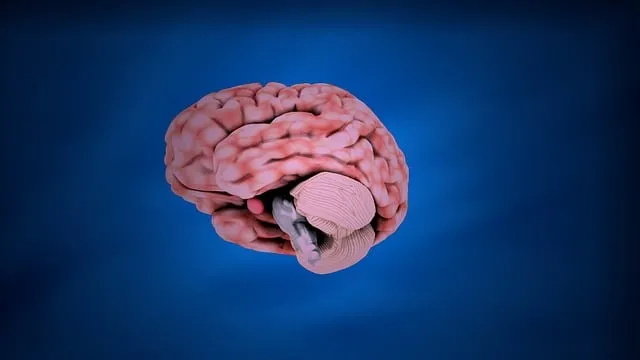Boulder Kaiser Permanente prioritizes patient safety through comprehensive Boulder Kaiser Permanente mental health coverage and risk assessment. By integrating compassion cultivation practices, they create a supportive environment where staff and clients work together to identify and manage potential hazards. Their harm minimization plans focus on proactive emotional well-being strategies, self-care routines, and key aspects like self-esteem improvement. Regular evaluations ensure their programs, including Anxiety Relief and Mindfulness Meditation, remain effective and aligned with evolving client needs.
“Risk assessment and harm minimization planning are vital components in ensuring patient safety, especially within healthcare settings like Boulder Kaiser Permanente. This article delves into the intricacies of these processes, offering a comprehensive guide for mental health services.
We explore ‘Understanding Risk Assessment’ as a cornerstone for effective harm minimization, followed by a detailed look at Boulder Kaiser Permanente’s mental health coverage and its implications. Subsequently, we provide practical steps for developing and implementing harm minimization plans, emphasizing continuous improvement through monitoring.”
- Understanding Risk Assessment: A Foundation for Harm Minimization
- Boulder Kaiser Permanente Mental Health Coverage: What You Need to Know
- Developing a Comprehensive Harm Minimization Plan
- Implementation and Monitoring: Ensuring Continuous Improvement
Understanding Risk Assessment: A Foundation for Harm Minimization

Risk assessment is a crucial foundation for any harm minimization strategy, especially within healthcare settings like Boulder Kaiser Permanente mental health coverage. It involves a systematic analysis of potential hazards and their likelihood of occurrence, along with the severity of possible consequences. By identifying risks, providers can implement targeted interventions to prevent or mitigate adverse outcomes, prioritizing patient safety and well-being.
At Boulder Kaiser Permanente, this process is integral to their Mental Health Awareness and Education Programs Design. They utilize Compassion Cultivation Practices to foster a culture where risk assessment is not just a clinical procedure but a compassionate, informed approach to care. This involves educating both staff and clients about mental health risks, empowering them to actively participate in harm minimization planning and ensuring comprehensive coverage for all.
Boulder Kaiser Permanente Mental Health Coverage: What You Need to Know

Boulder Kaiser Permanente offers comprehensive mental health coverage designed to support individuals in their journey towards better well-being. This coverage includes a range of services such as therapy, counseling, and support groups, all tailored to address various mental health concerns. In addition to traditional treatments, Boulder Kaiser Permanente promotes self-care routine development for improved mental health. They encourage patients to incorporate compassion cultivation practices into their daily lives, fostering a culture of kindness and understanding.
The organization’s approach also emphasizes the importance of self-esteem improvement as a critical component of overall mental health. By providing access to professional support and encouraging personal growth activities, Boulder Kaiser Permanente empowers individuals to take charge of their mental well-being. This holistic perspective ensures that members receive the comprehensive care they need to thrive in both mind and spirit.
Developing a Comprehensive Harm Minimization Plan

Developing a comprehensive harm minimization plan is an essential step for individuals seeking support, particularly through Boulder Kaiser Permanente mental health coverage. This process involves a collaborative effort between patients and healthcare providers to proactively address potential risks and triggers. The plan aims to offer guidance during crises, focusing on effective mood management strategies tailored to the individual’s unique needs. By incorporating crisis intervention techniques, emotional healing processes can be facilitated, ensuring that patients have the tools to navigate challenging situations with increased resilience.
A well-structured harm minimization strategy includes identifying high-risk scenarios and implementing preventive measures. It educates individuals on recognizing early warning signs of distress, encouraging proactive self-care practices. Additionally, it ensures a support network is in place, offering a safety plan for times when emotional healing processes may be temporarily compromised. Boulder Kaiser Permanente’s mental health coverage plays a pivotal role by providing resources and expertise to help patients develop and adhere to these comprehensive plans.
Implementation and Monitoring: Ensuring Continuous Improvement

Effective risk assessment and harm minimization planning aren’t one-time events; they require continuous evaluation and adjustment. At Boulder Kaiser Permanente, we understand that mental health coverage is a dynamic field, where new challenges and best practices emerge constantly. Therefore, our approach involves regular implementation and monitoring to ensure that our strategies remain relevant and impactful.
Through ongoing assessment, we identify areas for improvement in our Mental Wellness Coaching Programs Development initiatives, such as Anxiety Relief and Mindfulness Meditation techniques. By closely monitoring these programs, we can quickly adapt to changes in client needs, ensuring that our coverage remains comprehensive and effective. This commitment to continuous improvement not only enhances the quality of care but also fosters a healthier, more resilient community for all.
Risk assessment and harm minimization planning are essential components of any comprehensive healthcare strategy, particularly when focusing on Boulder Kaiser Permanente mental health coverage. By understanding risk assessment as a foundation, developing detailed plans, and continuously monitoring implementation, individuals and organizations can ensure the delivery of high-quality, safe, and effective mental health services. This approach not only protects patients but also fosters a culture of continuous improvement within healthcare systems.






